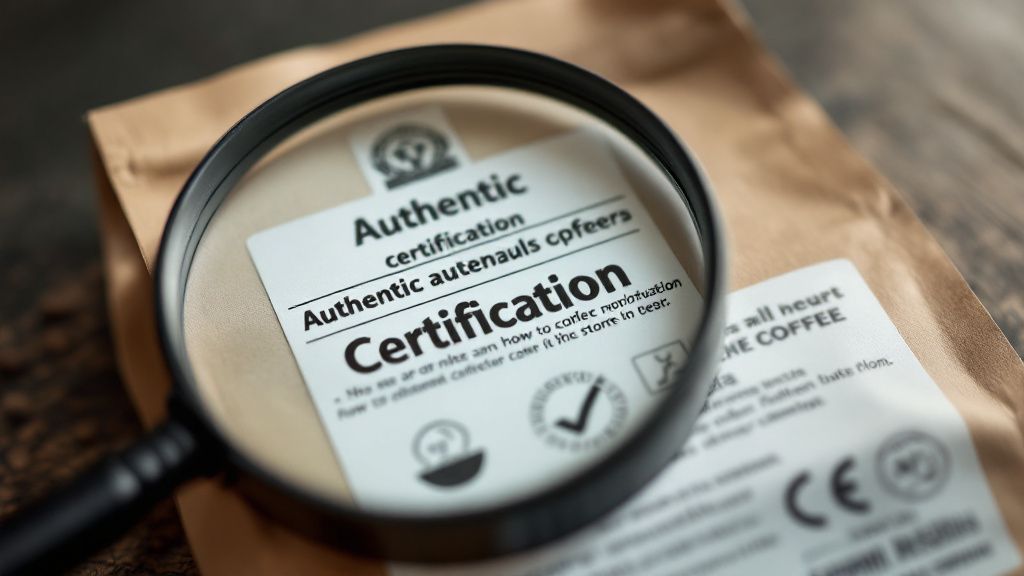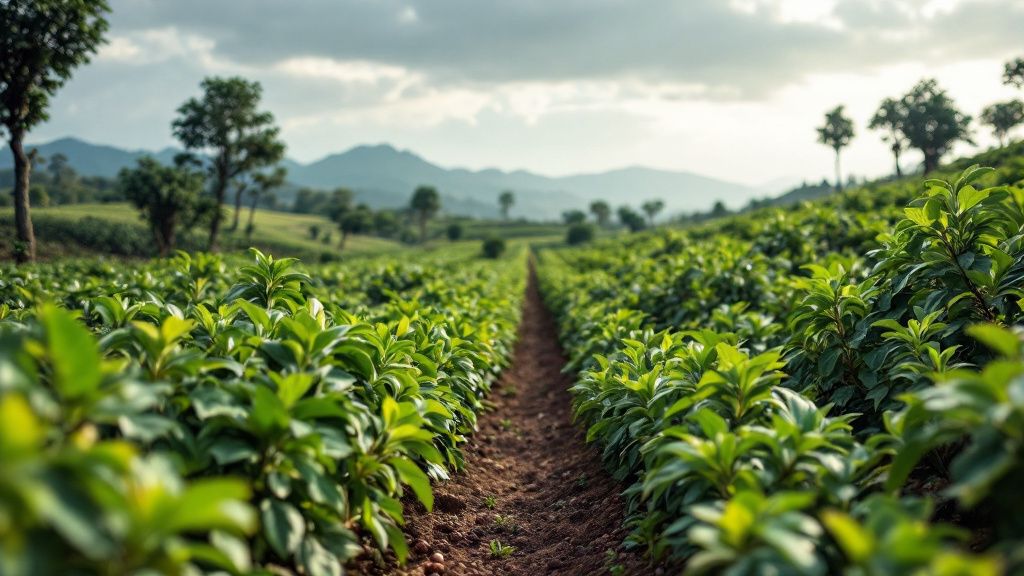How to Read Coffee Certifications and What They Mean
Navigating the world of coffee certifications can initially seem daunting, yet it's key to ensuring you're making ethically and environmentally sound choices. When you see a coffee certification label, it represents a specific standard that has been met. Understanding these symbols starts by focusing on a few well-known types. For instance, fair trade coffee certification ensures that farmers receive fair compensation and work under safe conditions. Other labels might indicate organic farming practices or adherence to sustainability initiatives.
As you become familiar with these certifications, you'll be more adept at selecting coffee that aligns with your values, ensuring your purchase supports beneficial practices globally.

Importance of Coffee Certifications
Coffee certifications are essential as they offer assurance about the quality, ethics, and sustainability of the coffee you choose. These certifications serve as a seal of trust, revealing insights into the journey from bean to cup. They assure you that the coffee industry supports fair labor practices and environmentally sound farming techniques, protecting both workers and landscapes. As you understand these labels, making responsible choices becomes second nature.
By selecting coffee bearing recognized certifications like fair trade coffee certification, you are making informed decisions that respect both people and the planet. Fair trade, for example, prioritizes equitable treatment and sustainable growth for coffee farmers and their communities. This significantly influences growers' lives while promoting environmental health.
In the coming years, coffee certifications are predicted to become a determining factor in consumer choices as awareness becomes more widespread. As more coffee enthusiasts demand transparency and ethical sourcing, the importance of these certifications will only escalate, encouraging better practices across the industry.
Using certifications as a guide, you contribute to a movement encouraging ethical and sustainable coffee production. This not only ensures a superior tasting experience but also aligns with conscientious consumption, fostering positive change in global coffee supply chains.

Common Coffee Certifications Explained
Coffee certifications guide you through the diverse array of ethical and quality standards in the coffee world. Fair Trade certification, for example, strives to secure fair compensation and safe working conditions for farmers. This certification fosters community development and ensures that producers are investing in their businesses and environments for longevity.
Another prominent certification is USDA Organic, which guarantees that the coffee is grown without synthetic fertilizers or pesticides. This not only supports healthier growing methods but also enhances the biodiversity of coffee farms. The organic label assures you that the coffee is cultivated in harmony with nature.
Rainforest Alliance certification focuses on the conservation of ecosystems alongside agricultural productivity. This certification promotes sustainable farming to maintain biodiversity and improve farmers' quality of life. It helps preserve habitats while offering a coffee quality that doesn't compromise ecological integrity.
Think of coffee certifications as a map guiding you to conscientious choices. Just like choosing a sustainable path in a forest, these certifications ensure you navigate your coffee selections with respect for people and ecosystems. Embracing these certifications is embracing a commitment to positive change in the industry.

How to Identify Authentic Certifications
Identifying authentic coffee certifications requires keen attention to detail and understanding of the specific markings on packaging. Authentic certifications are usually represented by recognizable logos from certifying bodies like Fair Trade USA or the Rainforest Alliance. By familiarizing yourself with these symbols, you can easily discern coffee that meets stringent ethical and sustainability standards, ensuring confidence in your selections.
You should also look for unique identification numbers or QR codes on labels, allowing you to verify the certification's legitimacy by visiting the certifying organization's website. This step confirms that the product you've chosen truly adheres to the values of the certification stated on the package, providing transparency and peace of mind.
To truly understand coffee certifications, you need to shift your mindset from simply appreciating branding to valuing verified sustainable practices. This perspective empowers you to make informed choices, recognizing certifications as tangible commitments to ethical production. Embracing this mindset means you support a fairer, more sustainable coffee industry with every purchase.
Recognizing authentic certifications involves a blend of vigilance and informed awareness. By doing so, you actively participate in promoting sustainable practices within the coffee sector, ensuring the coffee you enjoy is part of a system that benefits both nature and the global community.
Fair Trade Certification Overview
Fair Trade certification is designed to ensure that coffee farmers receive a fair price for their produce and work under ethical conditions. This certification supports community development by investing in infrastructure, education, and health projects. By choosing fair trade coffee certification, you directly contribute to a system that values dignity, respect, and equality for workers in developing countries.
The process of achieving this certification involves strict adherence to standards related to wages, labor rights, and environmental practices. Each certified product is audited regularly to ensure compliance, empowering small-scale farmers by giving them a voice in international trade. Through this, you help foster an equitable marketplace that prioritizes the well-being of individuals and communities.
Looking ahead, fair trade coffee certification is expected to expand by incorporating new sustainability measures and increasing its global footprint. As consumers increasingly demand transparency and ethics, the influence of fair trade principles is likely to extend beyond coffee to other commodities. This evolution will foster a more equitable and sustainable trade landscape on a global scale.
Fair Trade certification is more than a label—it's a movement that aligns your coffee choices with positive societal impact. By understanding and supporting this certification, you play a crucial part in promoting fairness, sustainability, and protection of human rights within the global coffee industry.

Organic Coffee Certification Explained
Organic coffee certification guarantees that the coffee you choose is grown without synthetic pesticides, fertilizers, or genetically modified organisms, promoting healthier ecosystems and safer farming practices. This certification provides you with assurance that your coffee is cultivated using methods that sustain soil fertility and biodiversity, ultimately yielding a product that's safe for both the environment and consumers.
Tracing its evolution from the 1960s, the organic movement initially began as a response to concerns over the environmental and health impacts of conventional farming techniques. Farmers started adopting organic practices to reduce chemical use and preserve natural resources. Over the decades, the organic certification process has become rigorous, requiring adherence to strict standards to achieve certification. These practices enhance soil health, conserve water, and promote ecological balance, making organic coffee a popular and sustainable choice.
Choosing coffee with this certification supports the dedication of farmers who uphold sustainable farming methods. It contributes to preserving natural resources while preventing harmful agricultural practices. As you incorporate organic coffee into your lifestyle, you actively participate in encouraging a shift towards greater agricultural responsibility. Understanding the significance of organic certifications highlights their role in fostering a healthier planet and contributing to overall environmental improvement.
 Ratio Eight S2
Ratio Eight S2
 Ratio Eight Original
Ratio Eight Original
 Ratio Six
Ratio Six
 Ratio Four
Ratio Four
 Compare Machines
Compare Machines






